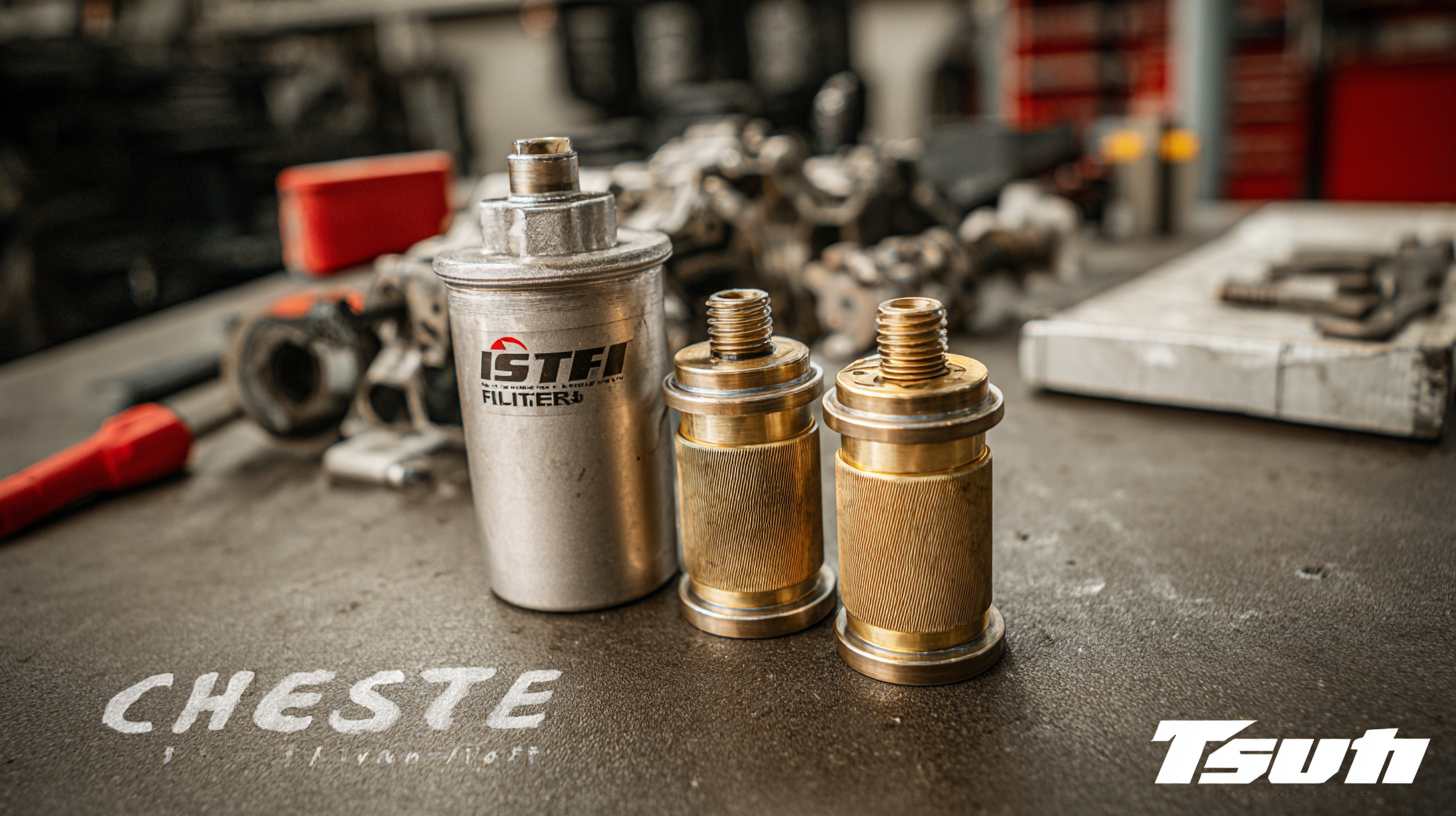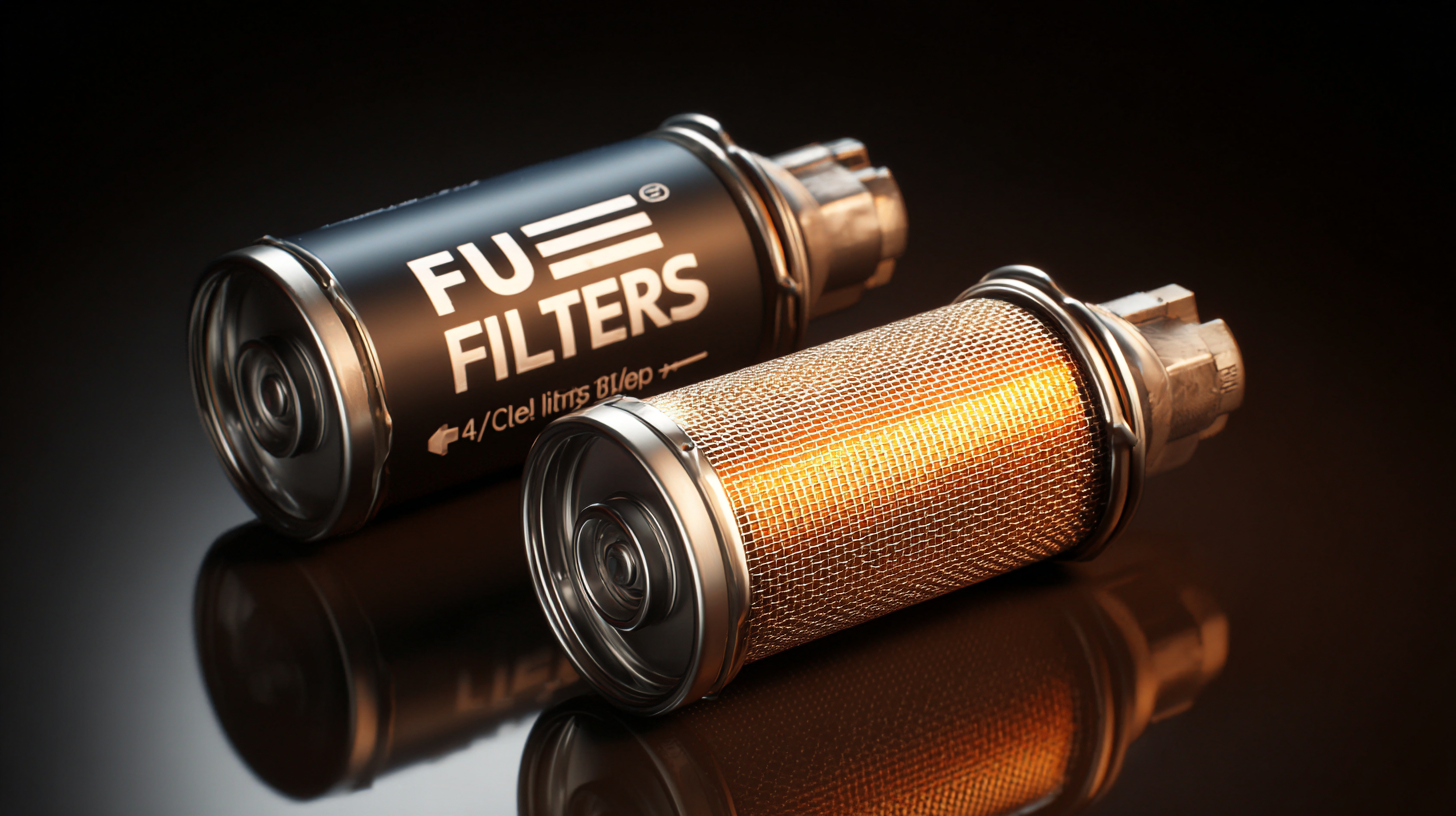
Ultimate Checklist for Choosing the Best Fuel Filters for Your Vehicle
Choosing the right fuel filters for your vehicle is not just a matter of preference; it's an essential aspect that impacts your vehicle's performance and longevity. Fuel filters play a crucial role in ensuring that contaminants are removed from your fuel before it reaches the engine, promoting smooth operation and efficiency. However, with various options available in the market, understanding the nuances of fuel filter selection can be overwhelming.

This blog will provide you with an ultimate checklist, incorporating essential import and export certifications that ensure quality and reliability in fuel filtration products. Additionally, we will include a tutorial-style approach to help you navigate through the selection process effectively, empowering you to make informed decisions for your vehicle's maintenance.
Whether you're a seasoned mechanic or a vehicle owner, this comprehensive guide will equip you with the knowledge necessary to choose the best fuel filters for your needs.
Key Considerations for Selecting the Right Fuel Filter for Your Vehicle
When selecting the right fuel filter for your vehicle, several key considerations come into play. First and foremost, compatibility is crucial. According to a report by the Automotive Aftermarket Suppliers Association (AASA), 80% of fuel system issues stem from inadequate filtration. Therefore, it’s essential to choose a fuel filter that matches your vehicle's specifications, including make, model, and engine type. This ensures optimal performance and helps avoid costly repairs due to contaminants entering the fuel system.
Another vital factor to consider is the filter's micron rating. Research indicates that fuel filters with a finer micron rating, such as 10 microns, can capture more particles, significantly reducing wear on fuel injectors and the fuel pump. A study by the Society of Automotive Engineers (SAE) highlighted that vehicles using higher-quality filters exhibited a 15% increase in efficiency and a substantial decrease in emissions. Additionally, it’s wise to consider the filter's lifespan and replacement interval, which can vary dramatically; some filters are designed to last up to 30,000 miles, while others may require more frequent changes. Understanding these aspects can save you time and money in the long run by maintaining your vehicle’s fuel system in peak condition.

Understanding Different Types of Fuel Filters and Their Functions
When it comes to maintaining your vehicle’s performance, understanding the various types of fuel filters and their functions is crucial. Fuel filters are designed to remove contaminants from fuel before it reaches the engine. According to a report from the Specialty Equipment Market Association (SEMA), approximately 15% of all vehicle issues are related to fuel delivery, making the selection of an appropriate fuel filter imperative. The most common types are inline filters, which are installed in the fuel line and help trap larger particles, and cartridge filters, which are generally found in fuel tanks and offer a finer filtration level.
Moreover, the functions of fuel filters extend beyond merely filtering out dirt and debris. They also play a pivotal role in maintaining fuel pressure and flow, which are essential for optimal engine performance. A study from the Automotive Aftermarket Industry Association (AAIA) revealed that clean filters can increase engine efficiency by up to 10%, directly impacting fuel economy and emissions. Thus, when choosing a fuel filter, consider factors such as filter type, micron rating, and compatibility with your vehicle’s fuel system to ensure a seamless and effective performance.

Essential Features to Look for in Quality Fuel Filters
When selecting fuel filters for your vehicle, certain essential features can significantly enhance performance and longevity. First and foremost, consider the filter's micron rating, which indicates its ability to capture impurities. A lower micron rating means it can filter out smaller particles, which is vital for protecting your engine from damaging debris. Look for filters with a rating of 10 microns or lower for maximum protection.
Another critical feature is the filter's construction material. Opt for filters made with high-quality materials like synthetic fibers that offer better durability and filtration efficiency. Additionally, check if the filter has a multi-layered design, which can provide improved flow rates and prolonged service life.
Lastly, pay attention to the compatibility of the fuel filter with your vehicle. It is essential to choose a filter that meets the manufacturer's specifications to ensure optimal performance. Always cross-reference the part number with your vehicle's manual to avoid costly mistakes. By focusing on these essential features, you can select a fuel filter that not only fits perfectly but also enhances your vehicle’s overall efficiency.
Maintenance Tips to Extend the Life of Your Fuel Filter
Maintaining your fuel filter is essential for ensuring the longevity and performance of your vehicle's engine. To extend the life of your fuel filter, regular inspections and timely replacements are crucial. It is important to keep an eye on restriction indicators, which can help determine the optimal time for a filter change based on fuel flow and pressure rather than solely relying on mileage. This proactive approach can save you from potential engine damage and costly repairs.
Another maintenance tip is to ensure your fuel system is clean. Contaminants can significantly shorten the lifespan of your fuel filter, so using high-quality fuel and adding fuel system cleaners can make a notable difference. Additionally, regular checks for leaks or issues in the fuel line can help prevent dirt and moisture from entering your fuel system.
Lastly, ensuring proper installation and following the manufacturer’s guidelines during replacement is vital. When installing a new fuel filter, ensure it is correctly oriented and secured. Following these tips not only extends the life of your fuel filter but also enhances overall vehicle performance and reliability.
Ultimate Checklist for Choosing the Best Fuel Filters for Your Vehicle
This chart presents the average lifespan of different types of fuel filters used in vehicles, alongside common maintenance tasks that can help extend their life. Each type of filter has a different maintenance frequency associated with it.
Common Mistakes to Avoid When Choosing Fuel Filters
When choosing fuel filters for your vehicle, it's easy to make mistakes that could lead to decreased performance and increased maintenance costs. One of the most common errors is selecting a filter based solely on price. While it might be tempting to go for the cheapest option, lower-quality filters often lack the durability and filtration efficiency needed to keep your engine running smoothly. This can result in fuel contamination and, ultimately, costly repairs.
Another mistake to avoid is not considering the specifications of your vehicle. Each make and model has unique requirements for fuel filters, including size, type, and filtration capability. Failing to match the filter to your vehicle can create compatibility issues and hinder performance. Additionally, neglecting to check the manufacturer's recommendations can lead to using outdated or incorrect filter types, further compromising your engine's health. Always prioritize quality and the specific needs of your vehicle to ensure optimal performance and longevity.
Ultimate Checklist for Choosing the Best Fuel Filters for Your Vehicle - Common Mistakes to Avoid When Choosing Fuel Filters
| Criteria | Importance Level (1-5) | Common Mistakes | Tips for Selection |
|---|---|---|---|
| Filtration Efficiency | 5 | Choosing a filter with insufficient filtration | Look for filters that meet or exceed OEM specifications. |
| Compatibility with Vehicle | 5 | Using a filter not suited for your vehicle | Check vehicle specifications or consult the manual. |
| Material Quality | 4 | Choosing filters made from inferior materials | Opt for filters with reputable construction materials. |
| Maintenance Frequency | 4 | Ignoring the recommended replacement schedule | Follow the manufacturer's maintenance recommendations. |
| Cost | 3 | Choosing solely based on price | Balance cost with quality and performance. |
